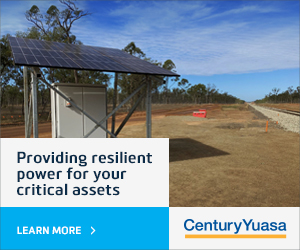Standards Australia has released the draft standard, DR AS/NZS 5328 Flushable Products for public comment, providing a nine week period in which the wider public can provide feedback on what materials should be classified as ‘flushable’.
The draft standard defines the criteria for material suitable for toilet flushing, along with appropriate labelling requirements, and will be the first of its kind internationally, where both utilities and manufacturers have come together in its development.
The need for the standard rose following years of contention around what can be flushed down the toilet. The issue was amplified at the onset of the COVID-19 pandemic, with people resorting to alternatives to toilet paper.
Water Services Association of Australia (WSAA) received reports of blockages of between 20 and 60 per cent in 2020, with people flushing materials like paper towels and wet wipes.
WSAA Executive Director, Adam Lovell, said, “The draft Standard provides manufacturers with clear specifications and sets out methods for testing whether products are suitable for toilet flushing and compatible with wastewater systems and the environment.
“It has been developed by a technical committee including manufacturers, water utilities, peak bodies and consumer groups and includes pass/fail criteria. Importantly the new draft Standard will help customers identify which products can be flushed with clear labelling.
“We know wipes and other items that shouldn’t be flushed are an issue for water utilities around the globe, disrupting customer services, creating extra costs for water utilities and customers, and impacting the environment through overflow.”
WSAA and the urban water industry in Australia and New Zealand have been concerned about the contribution of wet wipes products to pipe blockages for some time.
TasWater Service Delivery General Manager, David Hughes-Owen, said TasWater is pleased a standard has been released for public comment and hopes it will lead to clearer guidelines.
“Items including wet wipes and paper towels, when flushed, cause a build-up in our systems,” Mr Hughes-Owen said.
“Flushing these items also risks blocking both the household pipes as well as TasWater’s sewerage system, and they remain a problem right up until we have to sift them out when they reach the sewage treatment plant.
“We hope that once the standard has been finalised, it will help lead to the reduction of items flushed which are not one of the three P’s: pee, poo or toilet paper.”
Coliban Water Managing Director, Damian Wells, also welcomes the draft standard.
“This is excellent news and we hope it will provide clarity for manufacturers of flushable wipes. For some time now, we have advised communities that wipes do not break down in our sewer network and therefore can’t be flushed,” Mr Wells said.
“This new Standard will benefit not only our communities and the operation of our local wastewater system, but people all over Australia, the environment and the water industry as a whole.”
Roland Terry-Lloyd, Head of Standards Development at Standards Australia, said, “In recent years, what constitutes a flushable product has been a source of contention across Australia, so this draft standard has great potential to be an important addition to the wastewater sector.”
Urban Utilities spokesperson, Michelle Cull, said the draft standard means that Australia is one step closer to reducing the number of wet wipe and fatberg blockages impacting wastewater networks.
“Each year we remove around 120 tonnes of wipes – which is the equivalent of 34 hippos – from our network,” Ms Cull said.
“The problem is that many wipes don’t break down like toilet paper after they’re flushed and can cause costly blockages in our sewer network as well as people’s private plumbing.
“Most consumers want to do the right thing but without a clear Australian standard on what should be labelled as flushable, they’re being left in the dark.”
Stakeholders from consumer interest groups, water utilities, local government organisations, suppliers, manufacturers, and technical experts have been involved in the development of the highly anticipated standard.
DR AS/NZS 5328 will be in the public commenting period for nine weeks from August 30 to November 1 2021 via Connect.
















